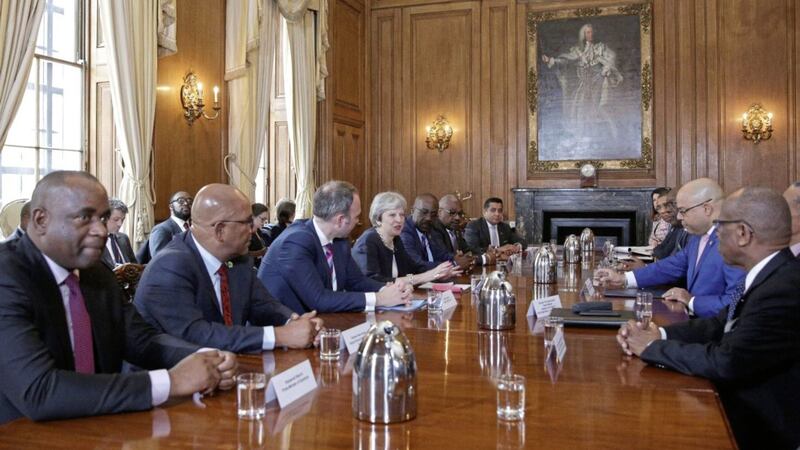THIS week marks the 50th anniversary of Enoch Powell’s infamous `Rivers of Blood’ speech.
It was exactly what it sounds like, a prophecy of bloodshed on the streets.
He was taking aim at what he saw as mass immigration – especially Commonwealth immigration – and the proposed Race Relations Act.
The speech was already ancient history when I was born, Powell reduced to a bogeyman, a totem of everything the world was not any more. His utterances were seen as the death-throes of the repugnant racist rhetoric of the Fascist forties.
His brand of hate was not given an opportunity to flourish - he was almost immediately sacked by then Conservative leader Edward Heath, as four members of the front bench vowed to resign before sitting around a table with him again. Powell later became Ulster Unionist MP for South Down.
The shock that an MP could say what he did was tangible, but ameliorated by the complete rejection of it by the establishment. His was a voice crying in the wilderness.
That’s where I expected him to stay.
And so I felt disquiet this week following BBC Radio 4's decision to broadcast in full, for the first time, the hate speech.
As the week progressed, that disquiet turned to dismay, because unfolding before me was a human tragedy from Powell’s wildest dreams.
The focus of his speech was on “ the black man” who he predicted “in 15 to 20 years’ time will have the whip hand over the white man” and advocated voluntary re-emigration by “generous grants and assistance”.
Even the most committed racist looking at Britain in 2018 would struggle to make the case that people of colour hold the whip hand, even with an extra 30 years in which to do so.
However, black people in their thousands – 12,056 in 2015 alone – have been deported `back’ to their country of `origin’.
Of those, 901 were over 50 years old.
These were the people that Powell was so concerned about. The children of the `Windrush’ generation invited by Britain to come with their off-spring, to bring their skills and their talents, to make their home in an unknown land and care for its sick, build its homes, serve in its army and pay its taxes.
These were people who thought they were coming to the motherland, but were met with hostility, suspicion and signs on doors saying `No Blacks, No Dogs, No Irish’.
A few people reading this newspaper will know how that felt.
These were the people who stayed despite that. They stayed despite Powell and his ilk’s prejudice and venom. They stayed despite being three times more likely to be arrested than their white neighbours.
Now, decades later, they are being told they are here illegally and facing deportation because they lack official paperwork.
The government omitted a key protection for some residents of the Windrush generation from the 2014 Immigration Act, insisting adequate protections were already in place.
Do the thousands of deportations suggest the British government got that wrong?
The only other explanation is that it was a barefaced lie, told because nothing was more important in the poisonous climate we now live in than forcing net immigration to the virtually unachievable 100,000.
Enoch Powell himself could have penned the execrable `Coming Home to Jamaica’ guide issued by the Home Office.
Among the gems, the advice on what to do “if you don’t have friends or family in Jamaica” – tacit acknowledgement that the people reading it are not Jamaican but British.
Another breathtaking example of the human decency vacuum at the heart of this policy is the admission: “When you return, you may face a number of challenges, such as separation from family, friends, personal possessions and property; problems locating family members and friends… (leading to) mental health problems...(including) suicidal thoughts”.
None of this apparently set alarm bells ringing that there was something morally wrong in forcing people to leave home, family and friends for an unknown land in a twisted echo of their first hope-filled journey.
You’d think when you have to tell a person to “Try to be `Jamaican’ – use local accents and dialect, (overseas) accents can attract unwanted attention”, that at that stage you may want to admit this is no joyful `voluntary re-emigration’ a la Powell.
Prime Minister Theresa May apologised to Caribbean leaders and insisted the right to remain will be honoured.
But for the thousands of people, not born within its borders, but who call the UK their home, this demonstration of how vulnerable their status is will cut deep.
What is home if it is not a place where you can relax and feel safe?








